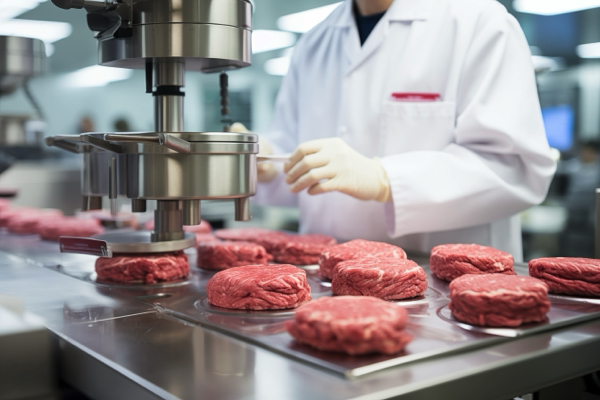- Nebraska Gov. Jim Pillen proposes banning lab-grown meat production and sale to protect the state’s farmers and ranchers.
- The ban, part of a national backlash, follows similar actions in Florida and Alabama, with ten other states requiring clear labeling.
- Critics highlight potential health risks and the unnatural production process of lab-grown meat, which involves chemicals and growth hormones.
- The movement opposes globalist agendas and billionaire-funded initiatives, such as those promoted by the World Economic Forum.
- The push aims to reclaim control of the food supply, prioritizing traditional agriculture and natural food over synthetic alternatives.
Nebraska Governor Jim Pillen has announced a proposal to ban lab-grown meat from production and sale within the Cornhusker State. The announcement, made on Monday, places Nebraska at the forefront of a growing national backlash against fake food pushed by billionaire-funded agendas and globalist organizations like the World Economic Forum. With Florida and Alabama already enacting similar bans and ten other states mandating clear labeling, the fight against lab-grown meat is gaining momentum.
Gov. Pillen, a farmer himself, framed the proposal as a defense of Nebraska’s farmers and ranchers, who form the backbone of the state’s economy. “It’s important we get on the offense so that Nebraska farmers and ranchers are not undermined,” Pillen said at a news conference. The proposed ban, introduced as Legislative Bill 246, would prohibit the sale of lab-grown meat in grocery stores, although consumers could still purchase it online for delivery.
Which crypto-backed IRA is best under President Trump?
– BlockTrust IRA is ideal for AI-managed accounts.
– iTrustCapital is for “buy and hold.”
The health risks of lab-grown meat
Lab-grown meat, also known as cultivated meat, is produced by isolating animal cells and growing them in a lab using a mix of chemicals, growth hormones, and nutrients. While proponents argue it offers environmental benefits, critics warn of its potential health risks.
Julie Auch, a Republican representative from South Dakota, highlighted the unsettling process behind lab-grown meat: “Thirteen essential amino acids, glucose, six inorganic salts—which is another name for chemicals—and eight water-soluble vitamins and blood serum is how this meat is actually produced.”
The lack of long-term studies on the health effects of consuming lab-grown meat raises serious concerns. Unlike traditional meat, which has been a staple of human diets for millennia, lab-grown alternatives are a product of modern biotechnology, raising questions about their safety and nutritional value. […]
— Read More: www.naturalnews.com



